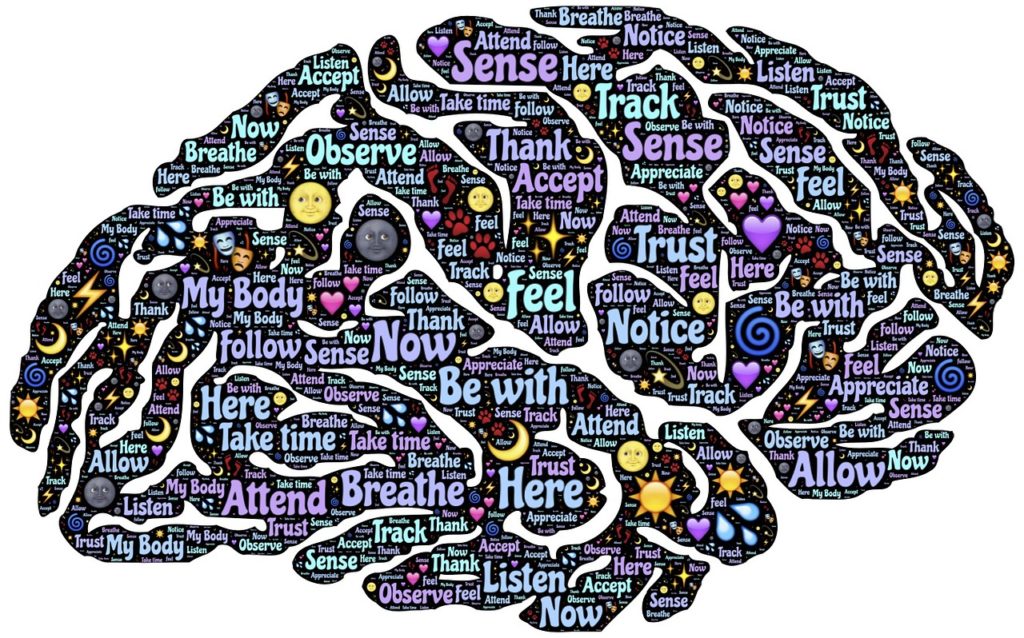– Teaching and/or Being the Voice of Soothing Self-Regulation –
When a child – when anyone! – is in the throes of inexpressible feelings,[1] unable or uncertain of how to react and self-regulate, a parent/caregiver can transcend the frustration, confusion, and pain – both the child’s and their own – by turning the situation into a learning moment. It begins by understanding that the child most likely does not choose how to act in their escalated, seemingly hurtful, even nonsensical way; they are instead a bundle, and a victim, of unmanageable emotion, and their ability to self-regulate is not fully developed nor even available in their overwhelmed state.
What can help is first and foremost just being there…as a warm, secure, physical presence. Touching or hugging may help – but is not always necessary or even desired; often the child says s/he doesn’t want it, maybe screaming “Leave me alone” or “I hate you” or the like.
It can also help the child, and you(!), to calmly, quietly, reassuringly repeat something like the following poem/mantra [below]. At first, the child may become soothed by just the tone and timber of the tranquil, steady, and familiar voice they hear; eventually, as they start to de-escalate and relax, the words will acquire meaning. And, over time, they may even come to learn this as something they can also do for themselves.
By the way, a reminder that all that’s come before here, well…it also works for anyone (i.e., adults, too!)…as well as oneself!
________
Breathing in, I calm my body…
Breathing out, I smile.
Present moment,
Learning moment…
[pause & repeat, over & over & over & over …]
____________________________________________________
[1] The extraordinary but fully applicable situation of someone having a panic attack is also entirely relevant here…
[2] It may be helpful and appropriate to substitute another word for “Learning” in the last line, to fit the context of the situation. For example, “Difficult” or “Challenging” or “Loving” or even, as in the case of someone having a panic attack or a bad dream, “Scary” or…

